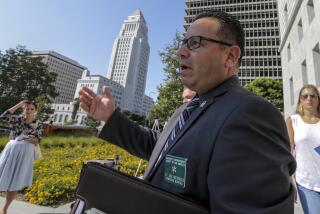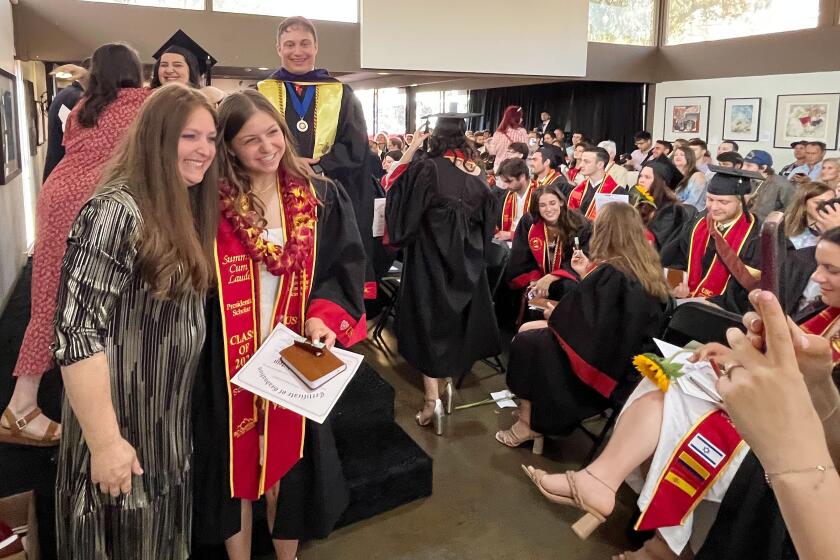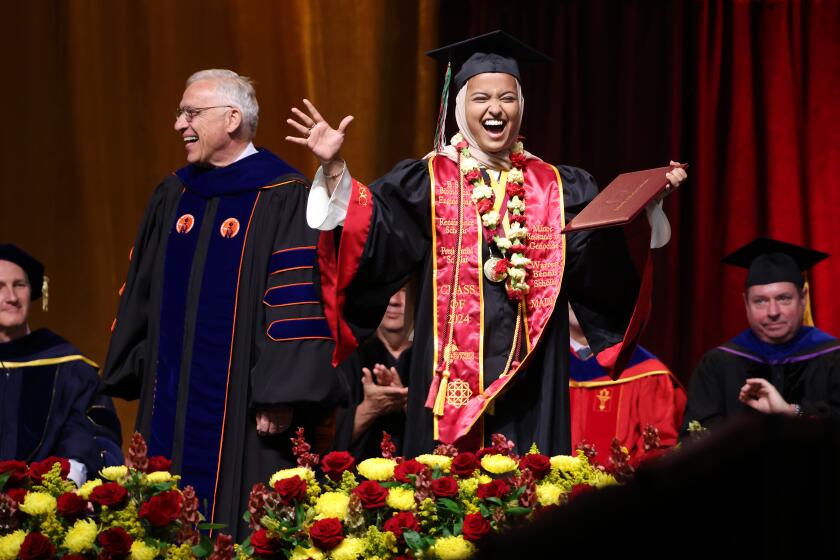Other Voices Speak on Bilingual Education
As an elementary, bilingual teacher in Southeast Los Angeles County and a Mexican immigrant, I commend you for the sensitive and fair reporting in your Jan. 28 article, “Voice of Experience.” It is always uplifting to read about a person’s heroic struggles in overcoming poverty and hardships.
I applaud Leticia Quezada’s fight for bilingual education. I am all for it because I have seen it work successfully with my second- and third-grade students.
All the major subjects are taught in their primary language (Spanish) except for art, physical education, music and E.S.L. (English as a second language). The use of the home language ensures that a “Limited English Proficient” student will not fall behind in the core curriculum while he’s learning English. When these students have mastered reading and writing in their native language, they are then able to transfer these skills to their second language, English. By the end of the school year, these kids are confident in their reading/writing skills and are eagerly tackling English storybooks on their own. They instinctively know which language is the key to success in America.
A common argument against bilingual educators is that we are contributing to a separatist, anti-American mentality. Nothing can be further from the truth. Every day, as sure as clockwork, my students recite the pledge of allegiance, in English and Spanish, and sing a patriotic song. Every day they are told how lucky we are to live in a great democratic country. But such abstract ideas as Americanism and democracy must be first described in their native tongue or minority-language students will not understand.
NORMA WILLIAMSON, Norwalk
More to Read
Start your day right
Sign up for Essential California for news, features and recommendations from the L.A. Times and beyond in your inbox six days a week.
You may occasionally receive promotional content from the Los Angeles Times.






